57+ Sample Construction Contract Templates
-
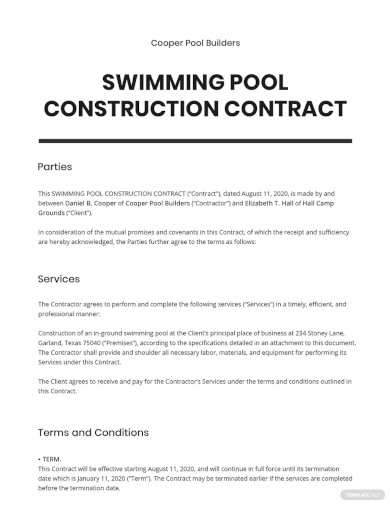
Swimming Pool Construction Contract Template
download now -
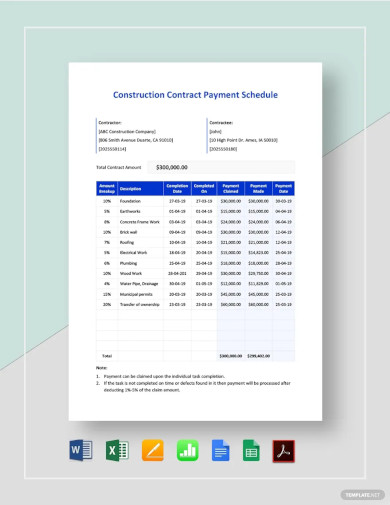
Construction Contract Payment Schedule Template
download now -
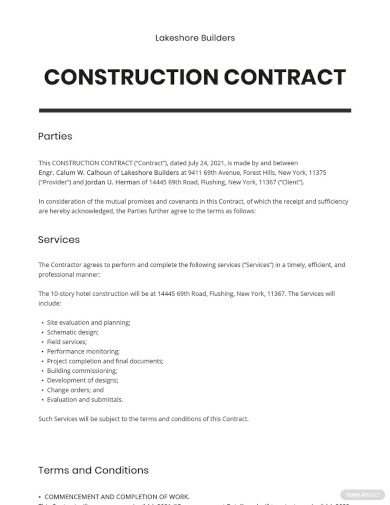
Construction Contract Template
download now -
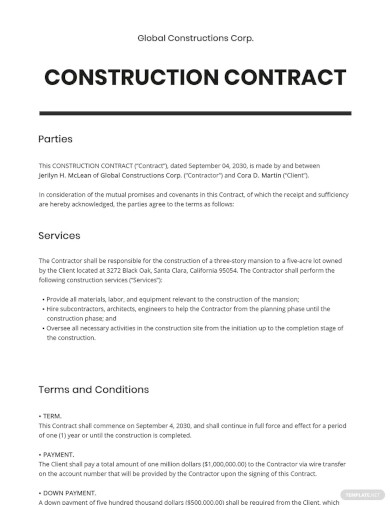
Printable Construction Contract Template
download now -
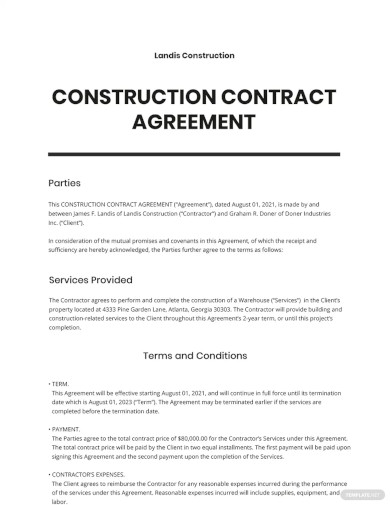
Construction Contract Agreement Template
download now -
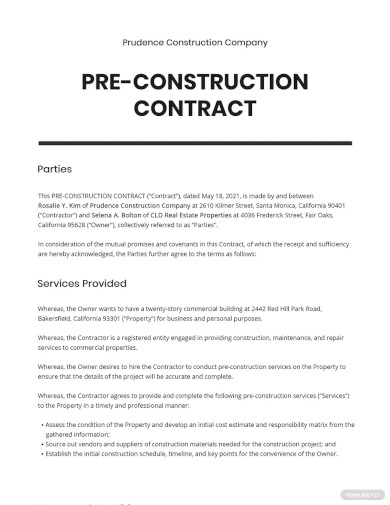
Pre Construction Contract Template
download now -
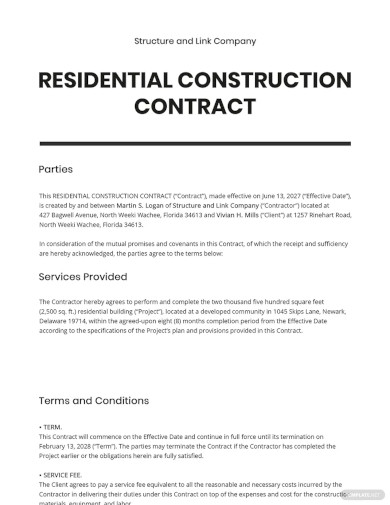
Residential Construction Contract Template
download now -
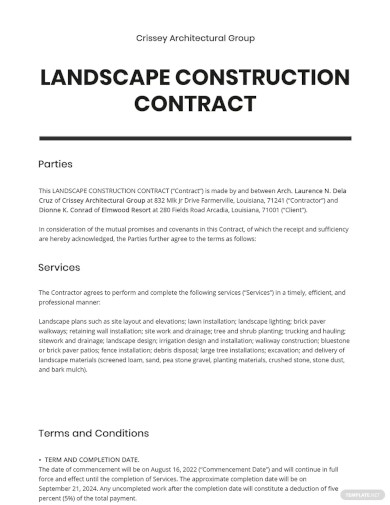
Landscape Construction Contract Template
download now -
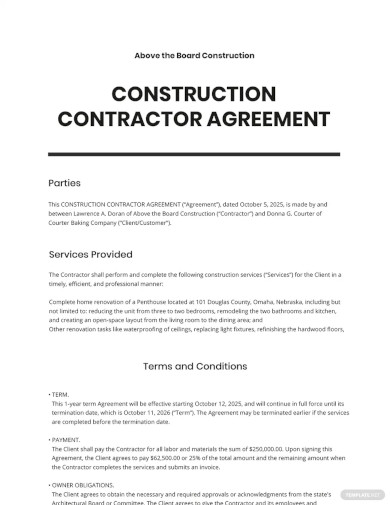
Construction Contractor Agreement Template
download now -
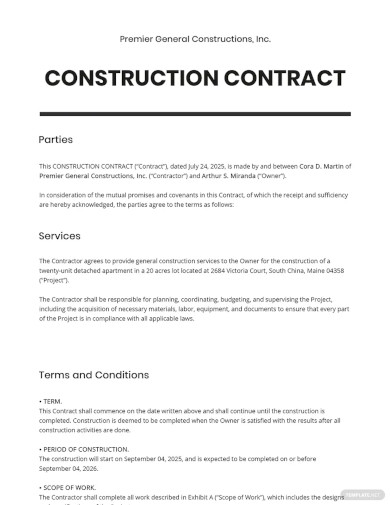
General Construction Contract Template
download now -
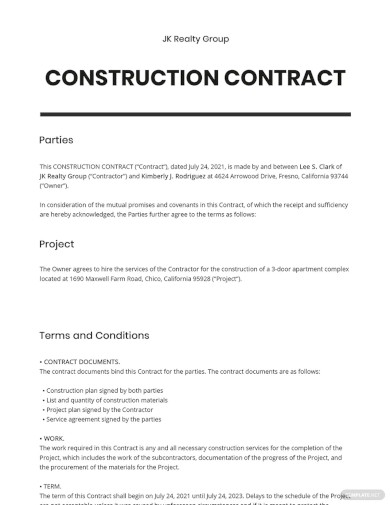
Basic Construction Contract Template
download now -
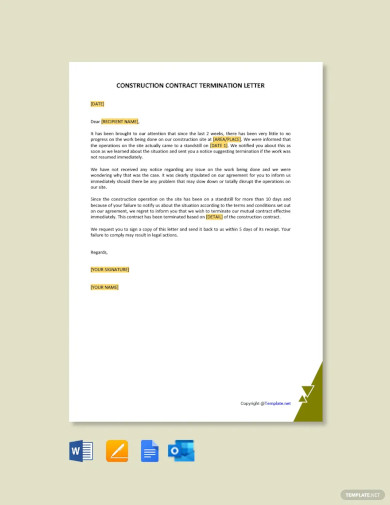
Free Construction Contract Termination Letter Template
download now -
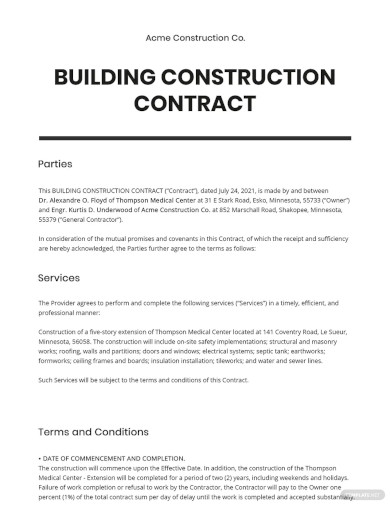
Building Construction Contract Template
download now -
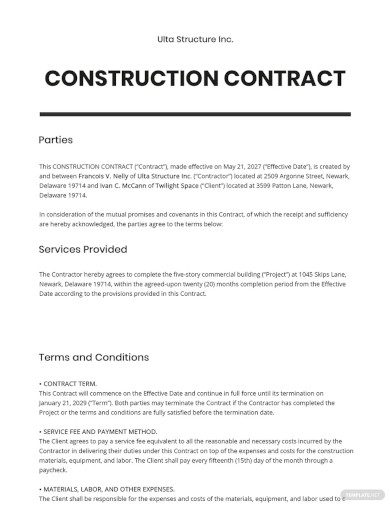
Simple Construction Contract Template
download now -
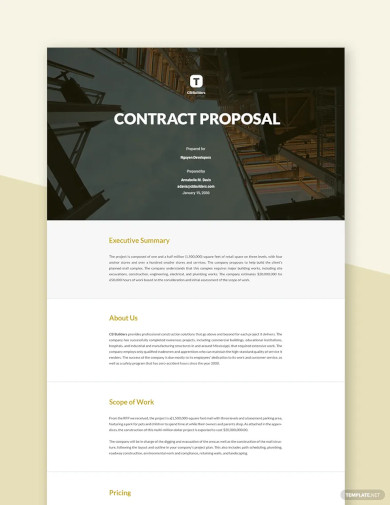
Construction Contract Proposal Template
download now -

Construction Contractor Business Plan Template
download now -
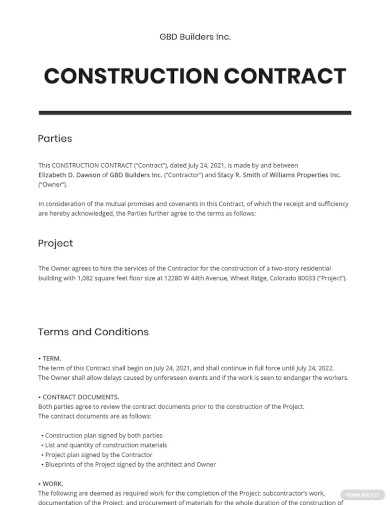
Small Construction Contract Template
download now -
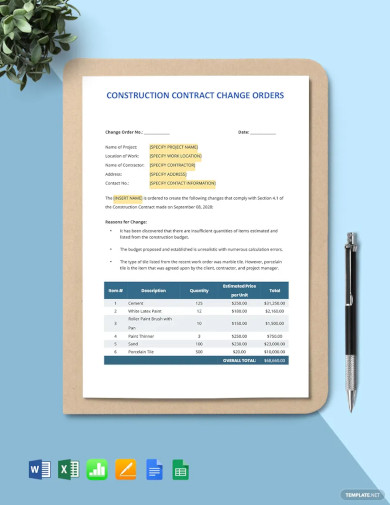
Construction Contract Change Orders Template
download now -
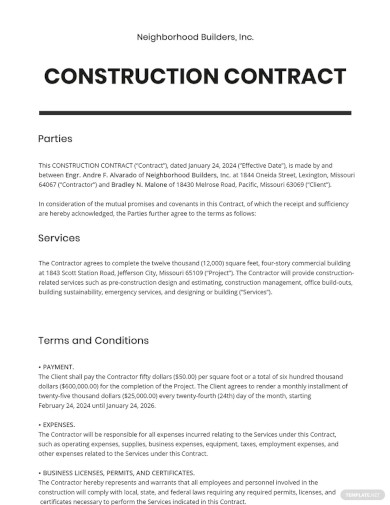
Sample Construction Contract Template
download now -

Standard Construction Contract Template
download now -

Printable Construction Contract
download now -
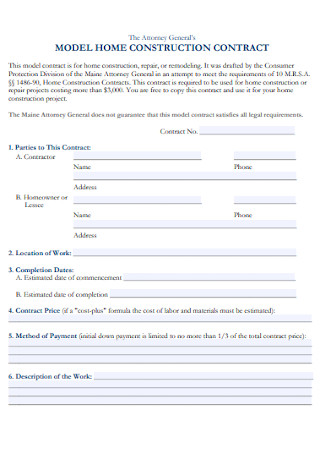
Model Home Contractor Construction Contract
download now -
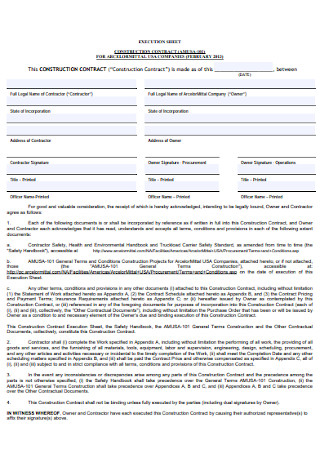
Company Construction Contract
download now -
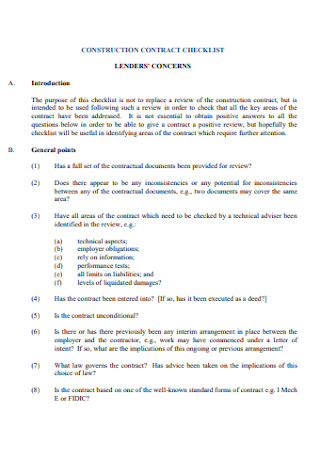
Residential Construction Contract Checklist
download now -
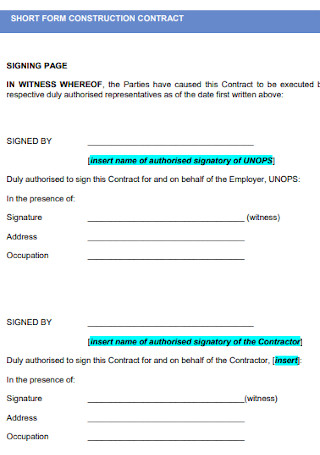
Short Form Construction Payment Contract
download now -
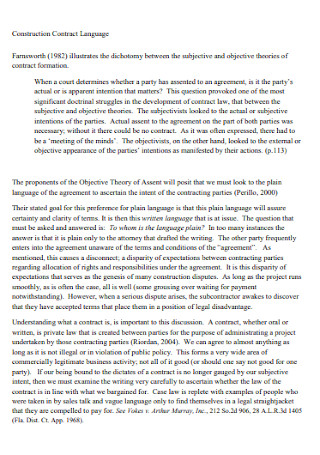
Construction Contract Proposal
download now -
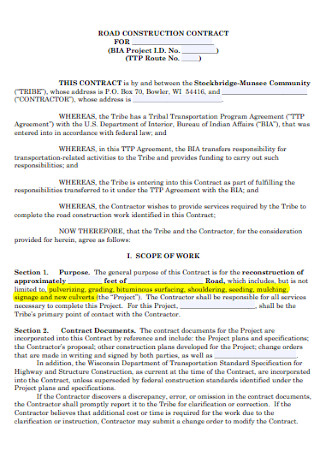
Road Remodeling Construction Contract
download now -
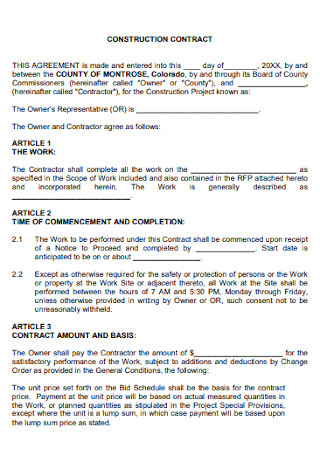
Sample Subcontractor Construction Contract
download now -
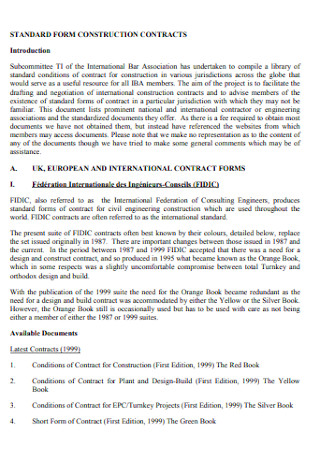
Commercial Construction Contract
download now -
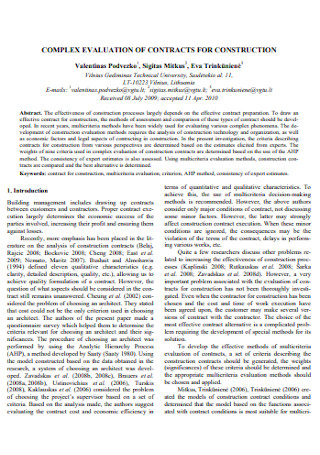
Legal Complex Evaluation of Construction Contract
download now -
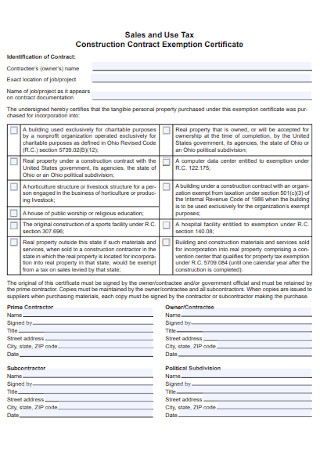
Building Construction Contract Exemption Certificate
download now -

Independent Contractor Construction Contract
download now -
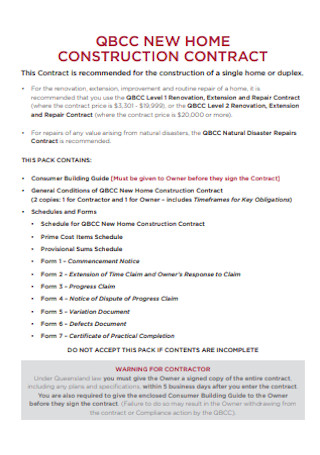
New Home Construction Completion Contract
download now -

Simple Employment Construction Contract
download now -
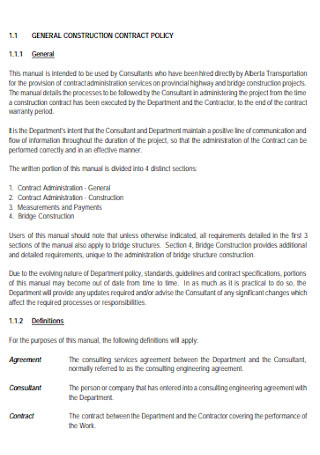
General Construction Notice to Proceed Contract Policy
download now -
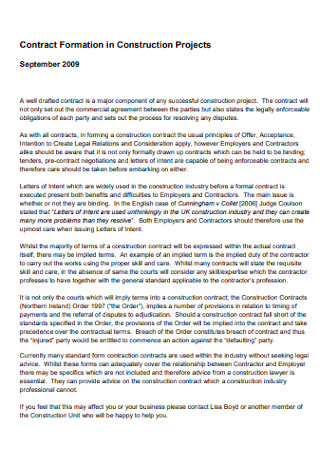
Project Homeowner Construction Contract
download now -
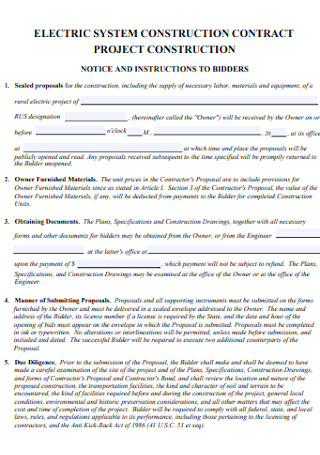
Electric System Construction Contract
download now -
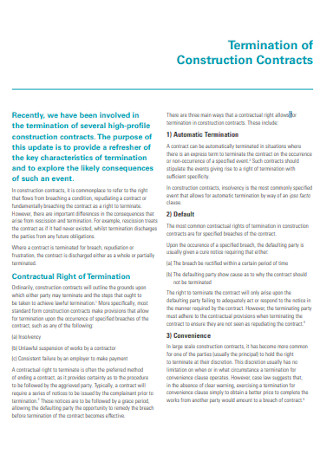
Sample Termination of Construction Contracts
download now -
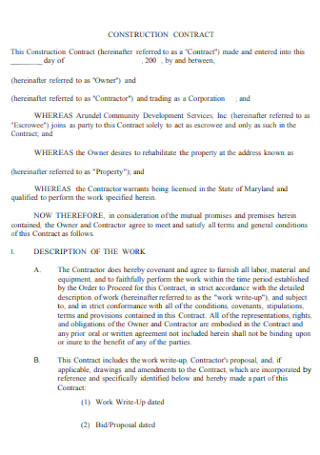
Formal Construction Contract
download now -
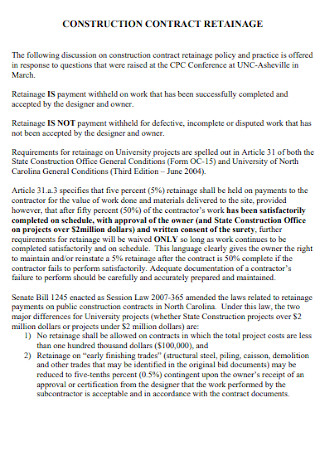
Construction Contract Retainage
download now -
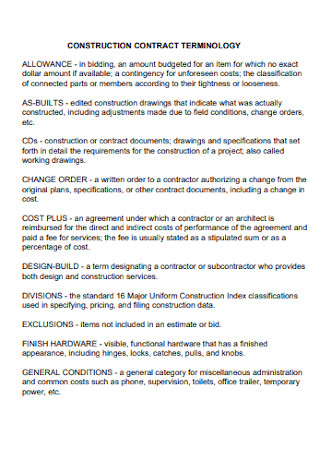
Construction Contract Terminology
download now -
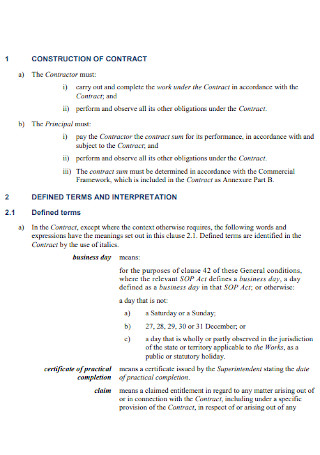
Work Construction Contract
download now -
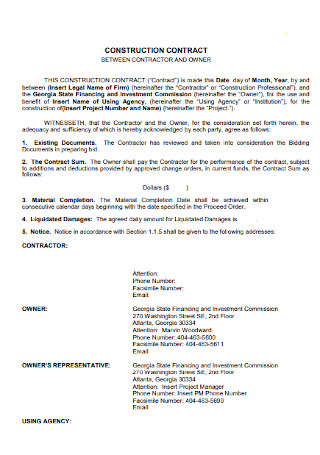
Build Construction Contract
download now -
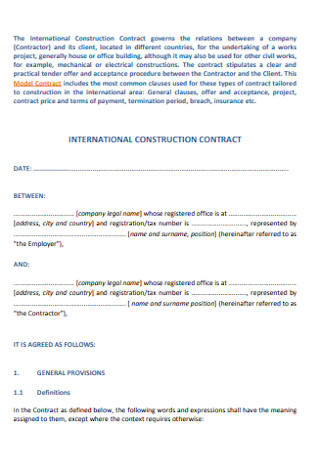
International Construction Contract
download now -
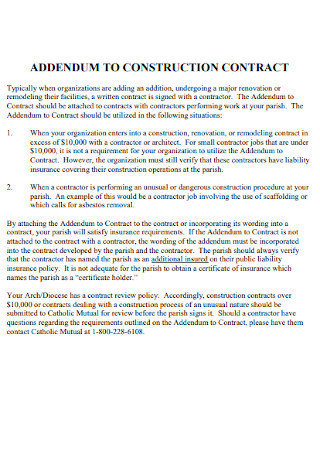
Addendum to Construction Contract
download now -
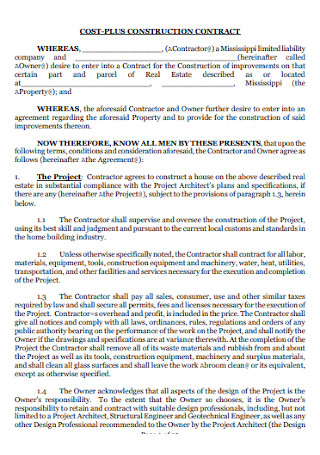
Cost-Plus Construction Contract
download now -
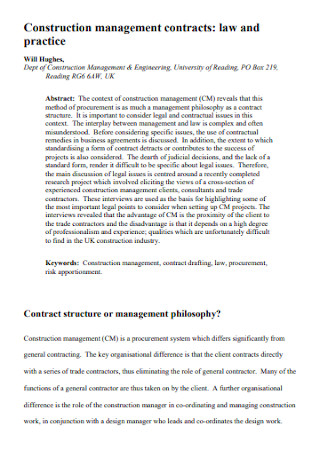
Construction Management Contracts
download now -
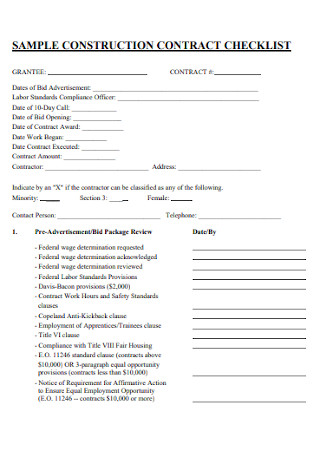
Sample Construction Contract Checklist
download now -
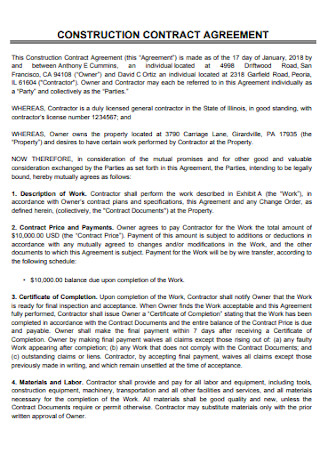
Construction Contract Agreement
download now -
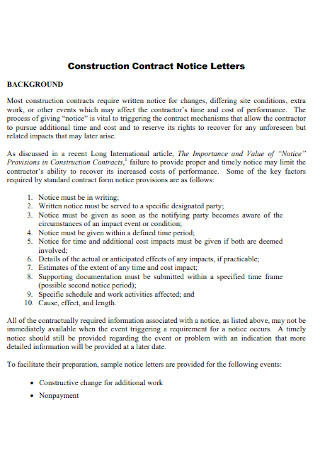
Construction Contract Notice Letter
download now -
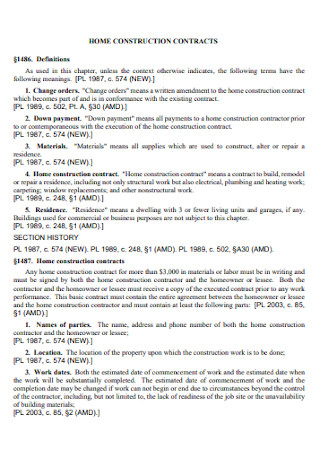
Basic Home Construction Contract
download now -
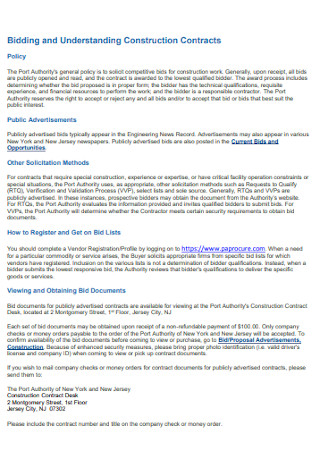
Bidding and Understanding Construction Contracts
download now -
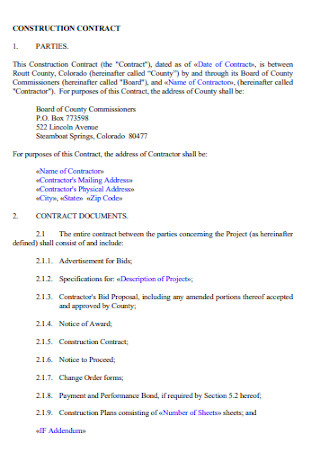
Construction Contract Format
download now -
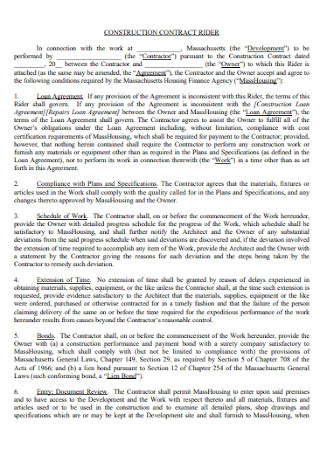
Construction Rider Contract
download now -
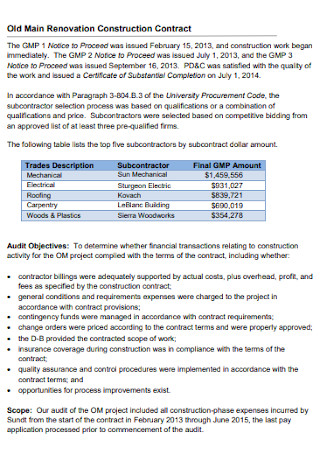
Old Main Renovation Construction Contract
download now -
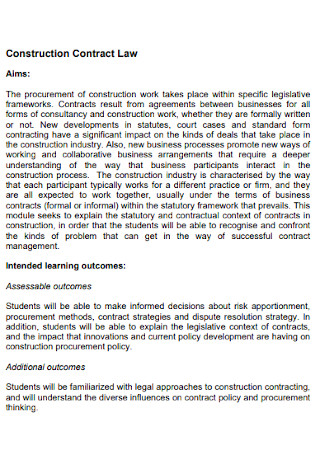
Construction Contract Law
download now -
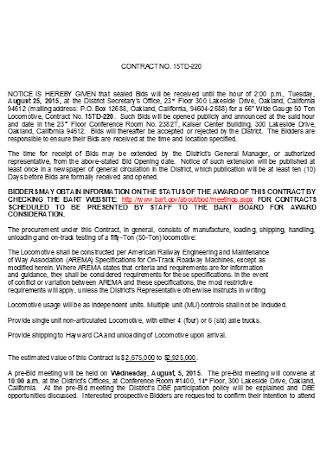
Area Construction Contract Template
download now -
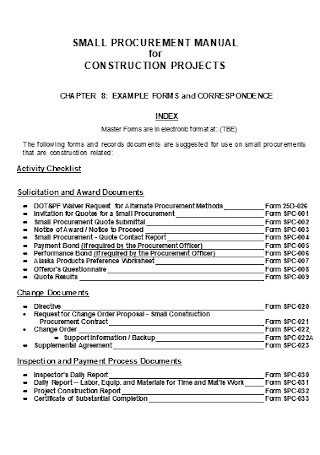
Small Procurement for Construction Contract
download now
FREE Construction Contract s to Download
57+ Sample Construction Contract Templates
What Is a Construction Contract?
The Essential Elements of a Construction Contract
The Main Types of a Construction Contract
How To Create a Formal Construction Contract
FAQs
Is a construction contract legally binding?
Why is the construction contract necessary?
What are the consequences of not having a construction contract?
What Is a Construction Contract?
According to an article from Chron, contracts are important in business because they lay out expectations from both parties and protects them once expectations are not met. Contracts also avoid both parties from deal-breaking during a business transaction. So, if you are about to work with a contractor for project construction, it is always essential to secure a construction contract first. A construction contract is a written document which obtains a summary of the terms and conditions, specifically the work that needs to be done to complete a project. This agreement is drafted by either the client, contractor, or a legal professional prior to the development or renovation of a building. A well-written construction contract outlines the roles and responsibilities of both parties until the project is completed.
According to the figures from Statista, the United States is the largest market in construction worldwide, with an expenditure of over 1,293 billion US dollars.
In the report from Statista, the leading US-based construction contractor based on new contracts is the Turner Corporation, with more than 15 billion US dollars in revenue for the year 2017.
As of April 2020, 30 states within the United States defined construction activities as essential in response to the global pandemic caused by the novel coronavirus (COVID 19), based on Statista.
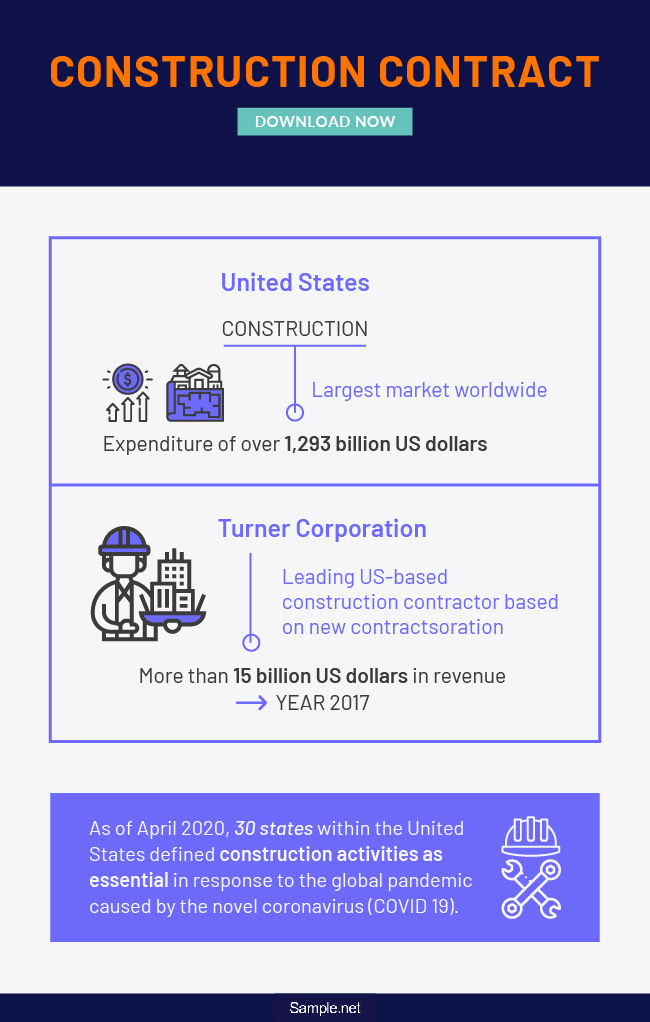
The Essential Elements of a Construction Contract
Following a well-written and detailed contractor and client construction contract has a great impact on the construction project. That is why it is imperative that the contract should consist of the necessary information. Here are the six essential elements of a construction contract to help you have an overview of what makes such an agreement.
Basic Information
The first essential element of a professional construction contract is the basic information of the parties. This section includes the full names of the client, contractor, and suppliers, title, and complete address. It should also include a signature from both parties to seal the contract. Without this essential information, the construction contract will be of no use in court once deal-breaking is present.
Scope of Work
The scope of work is an element that is always present in any contract, be it in the management contract, client contract, employment contract, etc. And sometimes, professionals tend not to give full detail on this. So, the scope of work in the construction contract should be explained detail by detail, including the work schedule, materials, and equipment to use, and other descriptions needed to complete a project.
Project Cost
Another essential element that should be included in a construction contract is the project cost. It is necessary to include a cost estimate of all the equipment and materials and the labor needed to build the project. It is also imperative to state this information clearly and accurately in the construction contract.
Payment Terms
The next element that is required in a construction contract is the payment terms. The construction contract must hold information regarding how the clients will pay the contractor, the amount that is due, the payment schedule, and how often the payment should take place. It is also essential to include a statement about the payment process and outline the documentation needed for the process.
Project Schedule
In this section, it is essential to provide a clear and precise project work schedule, the construction date, and the target date of completion. Following a project schedule in the construction contract enables both parties to avoid delays. However, if there are changes in the project, make sure to document the amount of time needed to complete each change.
Authority
This last element that completes a construction contract represents who has the authority to do certain tasks. It is essential to specify who is responsible for securing necessary permits and documents for the construction project, who is responsible for contacting suppliers, who make legally binding decisions, etc. Classification of authority is essential to avoid confusion during the construction of a project.
The Main Types of a Construction Contract
A construction project contract is a written agreement between the contracting parties—the client and the builder. This contract presents information about the project, such as project cost, materials to use, etc. A construction contract also lays out the work description that the contractor will do. A construction contract comes with multiple types, and each type is defined by how disbursements are being made. However, only a few are recommended and preferred by construction professionals. Below are the types of construction contracts that are commonly used in the industry.
Time and Material Contract
The first type of construction contract is the time and material contract. This is used and preferred if the project’s scope statement is not clear or has not yet been defined. In this case, both the client and the contractor must agree on an hourly or daily rate. It is also necessary to discuss additional costs that may appear during the construction process. The time and material construction contracts are useful for the small project scope.
Unit Pricing Contracts
The unit pricing contract is a type of construction contract commonly used by contractors and federal agencies. This contract must present information about specific quantities and pricing of items for the project, which are set during the bidding process. With this, the client will be able to verify and identify if he is being charged.
Cost Plus Contracts
Cost-plus contracts are a type of construction contract that involves payments from the construction activity. These payments include actual costs, purchases of materials, and other expenses that are related to the project. It contains specific information about the pre-negotiate amount needed for the project. The client uses this type of contract if the project scope is still not clear. Hence, the client’s responsibility is to provide limits regarding the amount the contractor will be billed.
Lump-Sum or Fixed Price Contracts
This type of construction contract consists of information regarding the total fixed price of all construction activities that are related to the project. This contract also includes benefits and incentives. A lump-sum contract is available when risks related to the project are present and need to be transferred to the contractor, to which a contractor can include costs from carrying them.
How To Create a Formal Construction Contract
Whether you are a contractor or a client that works with a construction project, it is always essential to set terms and conditions of your working relationship before the project begins. Outlining the terms of the service agreement is done using a construction contract. If writing a format and detailed construction contract worries you, we have here easy-to-follow instructions on how to create one. Here’s how.
Step 1: Provide a Title and Introduction
Start drafting a construction contract by writing a title that presents the construction project. Then, follow a brief introduction that simply states basic information about the parties involved in the said contract. The introduction in the construction contract should also state its purposes, which is to discuss terms and conditions agreed by both parties regarding the project. It should also include the address where the project will take place, as well as the start and end date of the construction project.
Step 2: Describe the Work
Now that you have already provided a title and quick introduction for the construction contract, the next thing to do is to describe the exact scope of work. Provide also a description of the materials and equipment to be used. In this section of your construction contract, it is essential to provide clear, specific, and concise information to avoid concerns once the construction project starts.
Step 3: Input Financial Information
Next to be added to the construction contract is the project’s financial information. State details regarding the amount the client will pay the contractor. It is also essential to discuss the contract price, payroll schedules, final payment, and interests. Explain also how changes in expected cost will be handled by both parties, as well as additions and deductions within the agreement.
Step 4: Specify Changes within the Work
After incorporating the financial information and payment details into the construction contract, it is time to describe and specify how the work changes will be handled. Changes in construction projects are always present, whether it is expected or not. So, it is important to discuss terms for possible changes that may occur. This is necessary to protect both parties from additional costs.
Step 5: Discuss Claims and Disputes
Discussing claims and disputes and how it should be resolved is essential in the construction contract. Any claims, disputes, or controversies regarding the project should be, in great detail, explained in the contract and the process of resolving it. Both parties can also choose a preferred forum to resolve concerns, as long as they agree to it.
Step 6: Seal the Construction Contract
Finally, seal the construction work contract by securing a signature from both the client and the contractor. Signing the contract entails that both parties have read and agreed to what information is written in the contract. Doing this suggests that both parties can proceed with the project. Hence, the contract needs to be signed. Failure to get the signature of the other party will result in problems during the project’s building process.
FAQs
Is a construction contract legally binding?
A construction contract or agreement is a legally binding written document that presents and summarizes the terms and conditions of the work agreement between a business owner or homeowner and a contractor.
Why is the construction contract necessary?
A construction contract is necessary because it protects the rights of both the client and the contractor. The construction contract ensures that there are no disputes and mistakes once a project starts.
What are the consequences of not having a construction contract?
Without having a construction contract while building a project puts risks in both parties. They may tend to spend more money, time, and resources, delay work completion, as well as dispute the scope of work. There is also a possibility that the client will not have a quality job done, and contractors will risk not being paid on time.
Business contracts play a valuable role in the business world. It outlines and sets forth terms and conditions regarding a business project. In the construction industry, construction contracts showcase information about the project that both the client and the contractor agree upon. So, if you plan to work with a construction contractor for a business project, it is necessary to have a work agreement using a construction contract. A construction contract ensures that both parties involved will do their end of the bargain. It also ensures that there are no concerns and confusion from both parties once the project begins.
